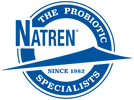Today (April 22nd) is Earth Day, and gives us a fine opportunity to think about our impact on the environment, and equally importantly, the impact of our environment on our health. A few weeks ago, we wrote about our “Inner Ecosystem” and highlighted the importance of organic foods. This time, we’d like to focus on what organic food really means, and what makes it so special.
Historically, all food was organic. Crops were farmed by hand, and later by machine. Meat was a smaller part of our diet, and animals were raised in an open environment with a natural food cycle. Then came the “Green Revolution” of the mid-20th century, where agricultural production dramatically increased due to increases in agricultural chemicals and massive post-war demands. The use of pesticides and chemical fertilizers became commonplace. An increase in general population wealth lead to increased demand for a protein-rich diet, and so animal husbandry tuned into a commercial meat-farming industry with an unnatural food cycle and considerable use of animal antibiotics and growth hormones.
The term “Organic Farming” was first introduced by Walter James in his 1940 book Look to the Land, where he raised many of the concerns of modern farming. As agricultural methods changed, so did public attitudes, and many more people started raising concerns about the health effects of these methods. These concerns were fueled by environmental and health issues from chemicals such as DDT, and more recently, from Genetically Modified Organisms (GMOs). Eventually, this lead to regulation, and in 1990, the Organic Foods Production Act sought to define and control a category of foods labeled as Organic. But what does that mean?
The most simple definition of “Organic” comes directly from the USDA, which regulates the industry:
“Organic is a labeling term that indicates that the food or other agricultural product has been produced through approved methods. These methods integrate cultural, biological, and mechanical practices that foster cycling of resources, promote ecological balance, and conserve biodiversity. Synthetic fertilizers, sewage sludge, irradiation, and genetic engineering may not be used.”
Or in other words: Food as it is supposed to be farmed! It is quite alarming that society has reached al level where these properties are considered special and out of the ordinary. This means that organically certified foods are:
- Not Genetically Modified, or given genetically modified feed
- Free from artificially synthesized fertilizers and pesticides
- Free from growth hormones and antibiotics
- From animals that are bred in a more humane environment
- Handled and processed in certified facilities
What’s not to like! It is true that most organic foods cost a little more than mass-produced food – generally because organic farms tend to be smaller, have lower yields, and also benefit less from government subsidies that benefit mass-produced crops – but we think it’s worth it – for the benefit of our planet and your health!
The post Earth Day: Think and Act Organically appeared first on Natren Probiotics Blog.




0 comments